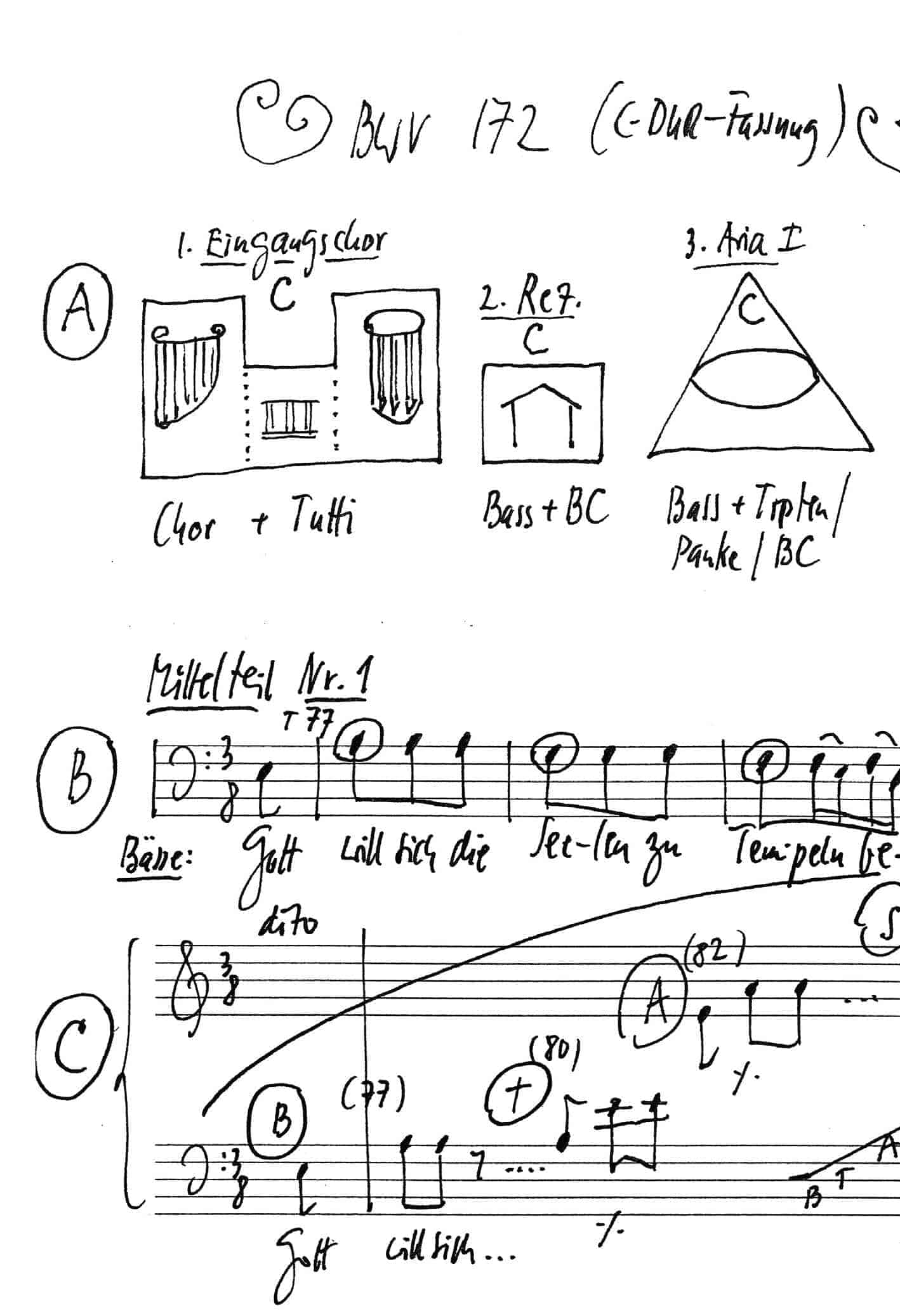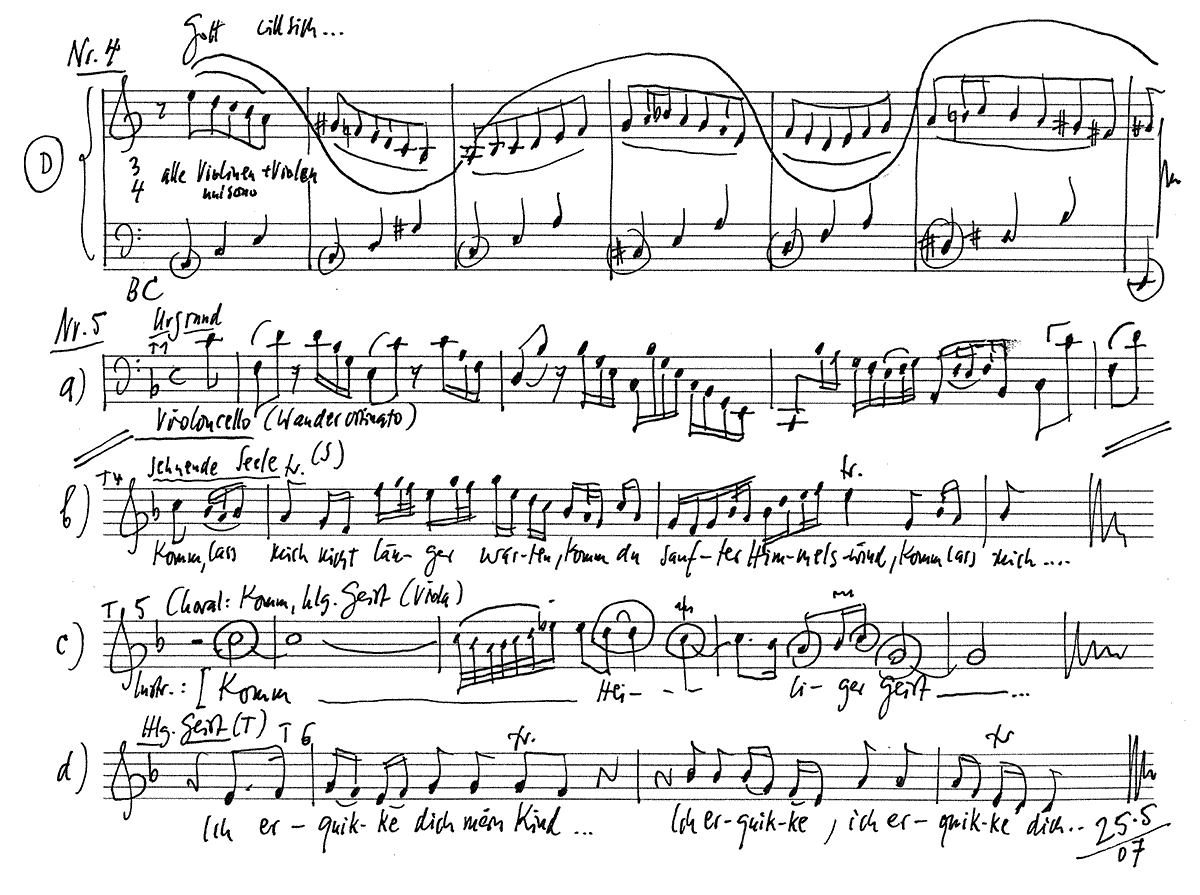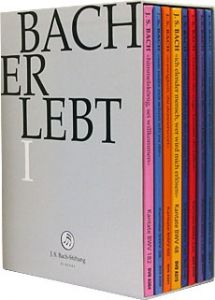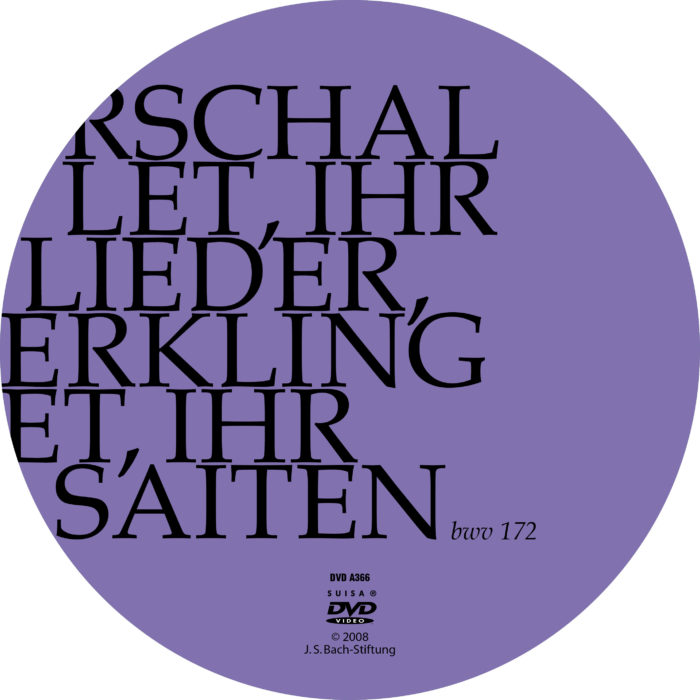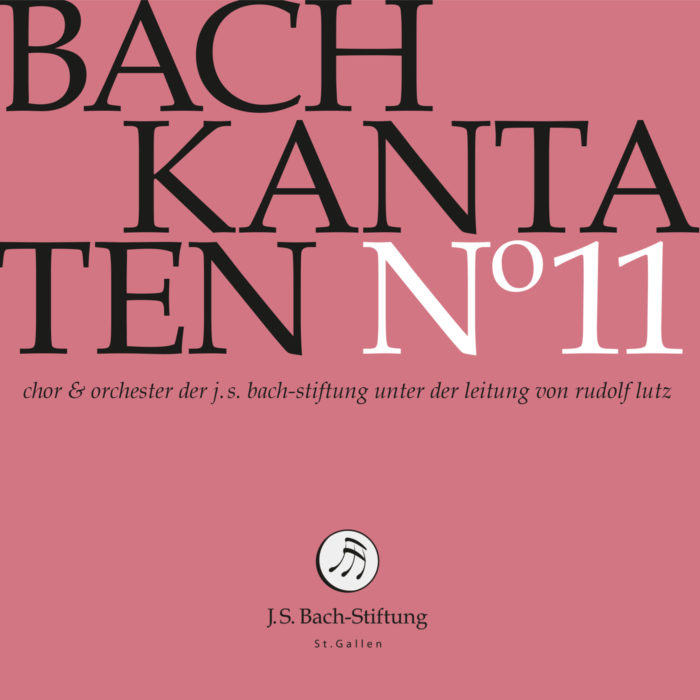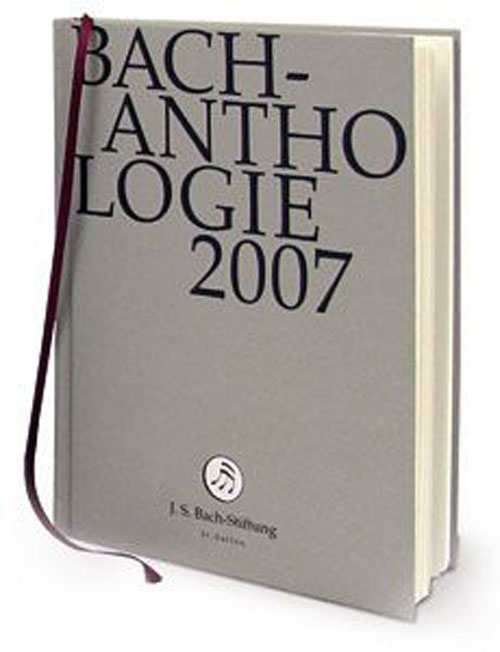Erschallet, ihr Lieder, erklinget, ihr Saiten
BWV 172 // For Pentecost (Whitsunday)
(Resound now, ye lyrics, ring out now, ye lyres!) for soprano, alto, tenor and bass, vocal ensemble, trumpets I-III, timpani, bassoon, strings and continuo.
Bach initially composed cantata BWV 172 in 1714 for Pentecost in Weimar, but revised and re-performed it several times throughout his Leipzig years, even transposing it from C major to D major. Considering the work’s outstanding musical quality, it is not surprising that these constant revisions led Alfred Dürr to conclude that Bach placed particular value on the composition. The number of versions, however, makes recording a representative rendition of the work quite a challenge. The performance on this recording is the version in C major (1714/1731), although it includes the repetition of the introductory chorus at the end of the work that is only proved to belong to the 1724 version. Based on its stylistic similarity to his other works, the libretto is attributed to the Weimar court poet Salomo Franck. Indeed, with three successive arias and almost no recitatives, this highly cantabile work is most typical of Frank’s cantata texts.
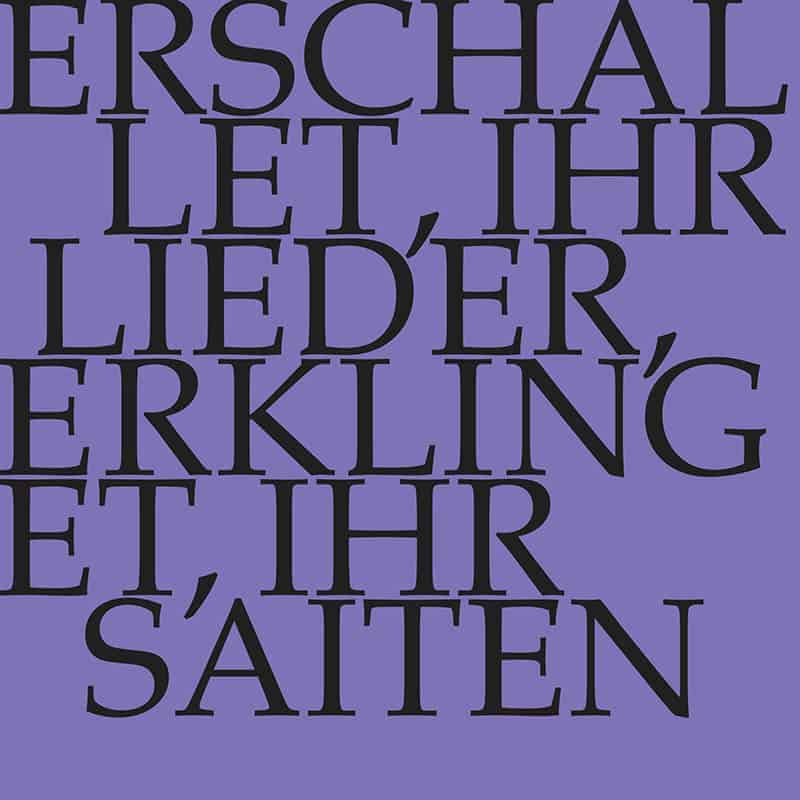
Would you like to enjoy our videos ad-free? Subscribe to YouTube Premium now...
Workshop
Reflective lecture
Choir
Soprano
Susanne Frei, Guro Hjemli, Noëmi Tran Rediger
Alto
Jan Börner, Antonia Frey, Dorothee Labusch
Tenor
Walter Siegel, Clemens Flämig, Marcel Fässler
Bass
Fabrice Hayoz, Philippe Rayot, Chasper Mani
Orchestra
Conductor
Rudolf Lutz
Violin
Renate Steinmann, Martin Korrodi, Silvia Gmür, Sabine Hochstrasser, Mario Huter, Livia Wiersich
Viola
Susanna Hefti, Joanna Bilger, Martina Bischof, Anna Pfister
Violoncello
Martin Zeller
Violone
Iris Finkbeiner
Bassoon
Susann Landert
Tromba da tirarsi
Patrick Henrichs, Peter Hasel, Klaus Pfeiffer
Timpani
Martin Hoffman
Organ
Nicola Cumer
Musical director & conductor
Rudolf Lutz
Workshop
Participants
Karl Graf, Rudolf Lutz
Reflective lecture
Speaker
Georg Kohler
Recording & editing
Recording date
05/25/2007
Recording location
Trogen
Sound engineer
Stefan Ritzenthaler
Director
Meinrad Keel
Production manager
Johannes Widmer
Production
GALLUS MEDIA AG, Switzerland
Producer
J.S. Bach Foundation of St. Gallen, Switzerland
Librettist
Text
probably Salomo Franck
Text No. 2
John 14:23
Text No. 6
Philipp Nicolai, 1599
First performance
1714, Weimar
In-depth analysis
The introductory chorus, an elegant da-capo choir aria with a middle-section fugue, is surprisingly tender given its large orchestration; it radiates the fresh charm of Bach’s Weimar cantata oeuvre. Of particular effect are the movement’s speech-like and resplendent trumpet setting of “Resound now, ye lyrics!” and its literal interpretation of “ring out now ye lyres!” (accompanied by strings), not to mention the elongation of the “happiest hours” on the euphonious (!) seventh interval. Following a brief bass recitative with arioso ending, the first aria responds with a festive fanfare, in which the praise of the “most Holy Trinity” is manifested by three trumpets, while the more cantabile middle section captures the text’s shift to an entreating, heartfelt plea.
The ensuing three-voice tenor aria “O paradise of souls” combines a fully instrumented unison string setting (brightened by a flute one octave higher in the 1724 version) with a striding continuo and a vocal cantilena of enticing tenderness. The following duet, for its part, is one of the jewels of Bach’s Weimar cantata movements. Here, the soprano and alto, tacitly personifying the Soul and Jesus, enter into an intimate dialogue over the cantabile cello accompaniment and express a longing for the comfort of the Holy Ghost. This is augmented by the chorale melody “Komm, Heiliger Geist, Herre Gott!” – richly ornamented in the style of Bach’s organ preludes – that articulates a higher dimension, albeit without words. In the original versions, the chorale melody is scored for obbligato organ or oboe (or oboe d’amore); in this recording, however, this “gentle heavenly wind” is lent an earthy timbre through the inclusion of Bach’s much-loved instrument, the viola. Characterised by the text and aura of the Song of Solomon, this arresting moment of unity of soul, saviour and comforter effectively brings time to a halt.
The closing chorale is given a similarly intimate mood through the ascending upper instrumental voice, thereby elucidating the mysterious events of Pentecost: humankind, weak and cold, is raised and transformed through the warming breath of mercy. While the reprise of the introductory chorus is shortened here to its effective opening statement, this interpretation is not only typical of Bach performances in the 19th century, but also corresponds to the baroque modified da-capo technique employed by the composer in the bass aria of this cantata and elsewhere.
Libretto
Seele (Sopran)
Heiliger Geist (Alt)
1. Chor
Erschallet, ihr Lieder, erklinget, ihr Saiten!
O seligste Zeiten!
Gott will sich die Seelen zu Tempeln bereiten.
2. Rezitativ (Bass)
Wer mich liebet, der wird mein Wort halten,
und mein Vater wird ihn lieben,
und wir werden zu ihm kommen
und Wohnung bei ihm machen.
3. Arie (Bass)
Heiligste Dreieinigkeit,
grosser Gott der Ehren,
komm doch in der Gnadenzeit
bei uns einzukehren,
komm doch in die Herzenshütten,
sind sie gleich gering und klein,
komm und lass dich doch erbitten,
komm und ziehe bei uns ein!
4. Arie (Tenor)
O Seelenparadies,
das Gottes Geist durchwehet,
der bei der Schöpfung blies,
der Geist, der nie vergehet;
auf, auf, bereite dich,
der Tröster nahet sich.
5. Arie (Duett Sopran, Alt)
Seele:
Komm, lass mich nicht länger warten,
komm, du sanfter Himmelswind,
wehe durch den Herzensgarten!
Heiliger Geist:
Ich erquicke dich, mein Kind.
Seele:
Liebste Liebe, die so süsse,
aller Wollust Überfluss,
Ich vergeh, wenn ich dich misse.
Heiliger Geist:
Nimm von mir den Gnadenkuss.
Seele:
Sei im Glauben mir willkommen,
höchste Liebe, komm herein!
Du hast mir das Herz genommen.
Heiliger Geist:
Ich bin dein, und du bist mein!
6. Choral
Von Gott kömmt mir ein Freudenschein,
wenn du mit deinen Äugelein
mich freundlich tust anblicken.
O Herr Jesu, mein trautes Gut,
dein Wort, dein Geist, dein Leib und Blut
mich innerlich erquicken.
Nimm mich
freundlich
in dein Arme, dass ich warme werd
von Gnaden:
Auf dein Wort komm ich geladen.
7. Chor
Erschallet, ihr Lieder, erklinget, ihr Saiten!
O seligste Zeiten!
Gott will sich die Seelen zu Tempeln bereiten.



